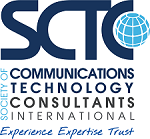Many organizations are investing in new communications platforms to provide greater flexibility for their staff and the people they serve. In many cases, these transitions can lead to added costs and potential delays. To avoid unpleasant surprises, organizations have often found that these communication platform transitions require an independent consulting firm to work with them to be successful. These organizations can work with their consultants to walk through these four phases to guarantee a successful transition to a voice over Internet Protocol (VoIP) platform.
Phase One: Assessment
It’s critical for the consultant to physically visit the sites that are involved with the VoIP transition. The consultant must also review the physical infrastructure, telecommunications/data room (TR) space, power, and TR room grounding. An improper physical assessment could lead to obstacles in the project, which may require additional costs to correct the issues. The infrastructure may require designs and a separate bid project to navigate unaddressed issues and ensure success. This extra work could push the project out four to six months, depending on the complexity and size of the organization. It might also add additional costs to the project.
Phase Two: Design
The design phase is an important part of any VoIP transition, as it sets the system and user requirements for the organization through department interviews, surveys, and other direction from the staff and stakeholders of the organization. These interviews focus on capturing the client's concerns and needs. This information provides vendors with a uniform set of guidelines and expectations, which can impact success and pricing requirements. In these designs, make sure you have a plan and process to deliver E911 services which are in compliance with Kari’s Law and RAY BAUM’s Act regulations and will make your facility a safer work environment for employees and customers. These are critical pieces of your design, especially with the new “hybrid” work environments organizations are putting in place. This phase takes approximately 30-60 days.
Phase Three: Procurement
The procurement phase provides a request for quote (RFQ) or request for proposal (RFP) document to vendors. Typically three finalists are compared, providing the client with an apples-to-apples scenario. Each vendor gives a systematic presentation and demonstration of their solution to a select group of stakeholders within the organization. It’s important during this presentation phase that the three vendor finalists have the personnel working on the project do the presenting. This process gives you—the client—an insight in working with that specific vendor staff. This phase, in most cases, takes upwards of 60-90 days to complete.
Phase Four: Implementation
The final phase of the transition is the implementation phase, where a qualified project manager is assigned to keep the vendor on task and provide all of the requirements that have been set forth within either the RFQ or RFP document. A critical piece is user training for on-site workers, remote users, and managing the new system platform. This phase takes approximately 90-180 days based on the size of the implementation and, in some cases, could take up to one year.
By following these four phases, independent consultants working for you can ensure a smooth transition while keeping the project on task. And, within budget, allow you, the end user, to experience the new features and functionality in a non-intrusive and engaging process.
Enjoy incredible speakers, insightful educational sessions, and plenty of networking opportunities for consultants at the SCTC annual conference, Oct. 23-26 in Dallas, TX. The conference is open to everyone.










